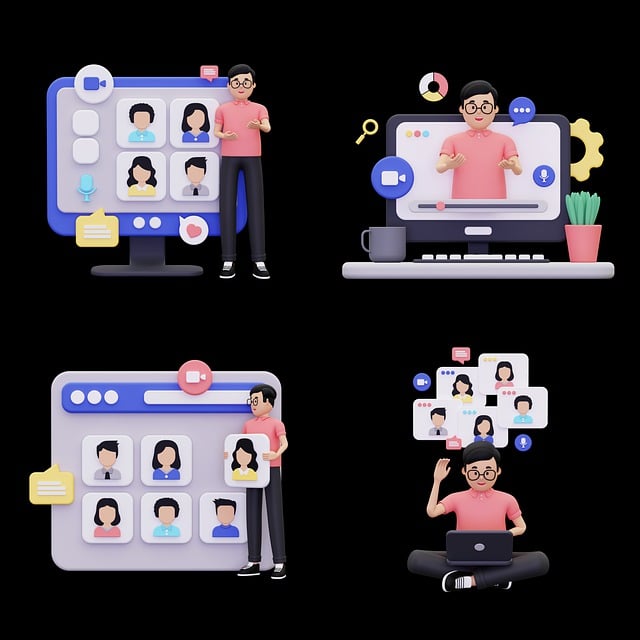Anonymizing browsers are essential tools for maintaining privacy in high-security environments, offering encryption, IP address masking, and ad blocking. They protect users from surveillance and retaliation, benefiting military personnel, contractors, environmental activists, and scientists. These specialized browsers, once used primarily by the military, now empower activists to organize campaigns securely and safeguard scientific research data. Integrating with VPNs, these tools enhance security for all users in diverse settings, including Greenpeace's global campaigns and scientific research worldwide.
In today’s digital age, military personnel and contractors operating in sensitive environments face unique challenges when it comes to online privacy. The need for an anonymizing browser is crucial to protect against potential threats and ensure secure communication. This article explores the significance of stealthy browsers in keeping users anonymous while accessing information, with a focus on military applications. We’ll delve into key features, best practices, and real-world case studies, highlighting why these tools are essential for those operating in high-risk scenarios—much like environmental activists and scientists navigating delicate research territories.
- Understanding the Need for Stealthy Browsers in Sensitive Environments
- Key Features of an Anonymizing Browser for Military and Contractors
- Best Practices for Maintaining Online Privacy While on Mission
- Case Studies: Success Stories of Stealthy Browsers in Action
Understanding the Need for Stealthy Browsers in Sensitive Environments

In sensitive environments where security and privacy are paramount, such as military operations or scientific research projects, the need for stealthy browsers becomes imperative. Traditional web browsing software can leave digital footprints that may compromise operations or expose confidential information. Anonymizing browser tools designed specifically for these contexts offer a solution by encrypting user data and masking IP addresses, ensuring users’ online activities remain undetected.
For military personnel and contractors handling sensitive intelligence or working in hostile environments, an anonymizing browser is not just a tool—it’s a critical security measure. Similarly, environmental activists and scientists conducting research on controversial topics may require such browsers to protect their identities and prevent potential surveillance or retaliation from adversaries or powerful interests.
Key Features of an Anonymizing Browser for Military and Contractors

When crafting an anonymizing browser designed for military personnel and contractors, several key features are essential to ensure secure and discreet online activities. These tools must provide robust privacy protections, including advanced encryption protocols to safeguard communications and data. The ability to mask IP addresses and prevent tracking is vital, especially when navigating sensitive environments or accessing classified information. Features like built-in ad blocking and a no-trace browsing mode help prevent digital footprints from being left behind.
Additionally, such browsers should offer secure and encrypted search capabilities, ensuring that queries remain confidential. The ability to seamlessly integrate with existing security protocols and systems is crucial for seamless operation in a military or contractor setting. Moreover, an anonymizing browser for these users must be lightweight, fast, and compatible with various platforms to facilitate easy deployment and use in diverse field conditions, reflecting the needs of both environmental activists and scientists working in remote or high-risk locations.
Best Practices for Maintaining Online Privacy While on Mission

Maintaining online privacy while on a mission is paramount for military personnel and contractors, especially when operating in sensitive environments. One effective strategy is to utilize an anonymizing browser tailored for their needs. These tools encrypt internet traffic, hiding user activities from prying eyes. By masking IP addresses and preventing tracking cookies, they ensure that missions remain covert and secure.
For instance, adopting best practices such as using a Virtual Private Network (VPN) in conjunction with the anonymizing browser can further enhance privacy. This combination creates an extra layer of protection by routing internet traffic through encrypted tunnels, making it even harder for unauthorized entities to trace online activities back to the user. Additionally, regularly updating software and being cautious about downloading files from untrusted sources are crucial steps in maintaining a high level of security while navigating the digital realm, especially for those working on confidential projects akin to those undertaken by environmental activists and scientists.
Case Studies: Success Stories of Stealthy Browsers in Action

In recent years, stealthy browsers have emerged as a powerful tool for individuals who operate in sensitive or high-risk environments. Beyond their application for military personnel and contractors, these anonymizing browsers have also proven invaluable for environmental activists and scientists worldwide. Case studies illustrate that these tools enable users to access information without leaving digital footprints, enhancing security and privacy. For instance, Greenpeace has successfully utilized stealthy browsers to organize global campaigns by protecting the online activities of its volunteers from surveillance, thereby fostering a more secure environment for planning and execution.
Similarly, scientific researchers working on sensitive projects in developing countries have found these browsers to be instrumental in safeguarding their research data and communications. By anonymizing web activity, researchers can freely explore and share information without fear of their digital trails being tracked or monitored by third parties. This capability has facilitated international collaboration and accelerated breakthroughs in various fields, demonstrating the broader implications of stealthy browser technology beyond military applications.
Military personnel and contractors operating in sensitive environments require robust tools to protect their online privacy. An anonymizing browser is a game-changer, offering a secure and discreet way to navigate the web without leaving digital footprints. By employing these advanced browsers, users can safeguard their missions and maintain confidentiality, ensuring their activities remain unseen and untraceable. With key features like built-in encryption, ad blocking, and script blocking, along with best practices for online privacy, individuals in high-risk situations can operate with enhanced security. The success stories highlighted in this article underscore the importance of anonymizing browsers as a critical component in protecting sensitive operations, making them indispensable tools for military personnel and environmental activists alike.
